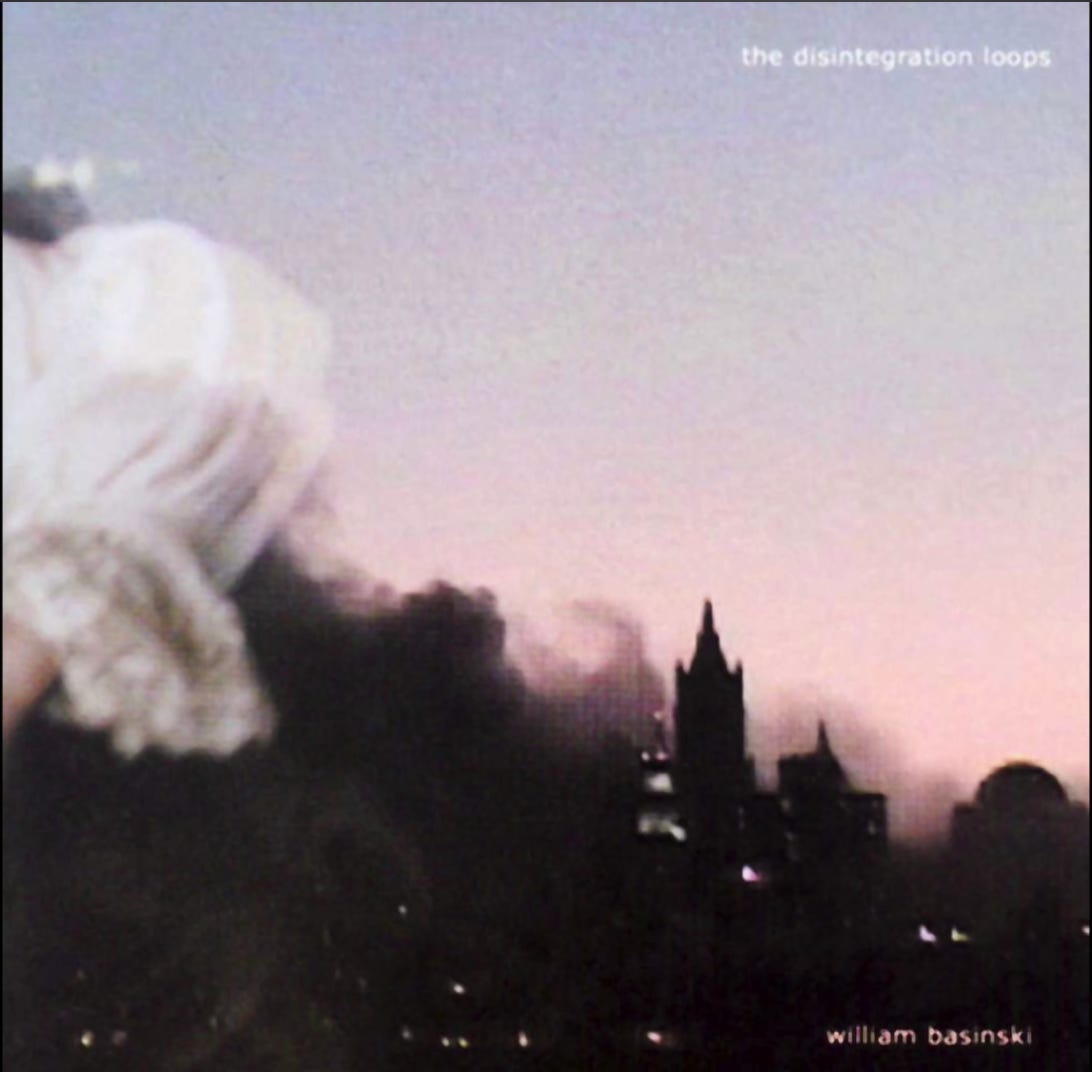September 11th, 2001, in New York City, a man is taking his stack of cassettes and transferring them to his PC.
The precious cassettes are almost 30 years old, and the glue that holds the magnetic tape will degrade soon.
He can hear pocks and distortions in the audio, but luckily he got to this before it was too late. He’s been meaning to do this for years. For now, his favorite childhood music is safe from the ravages of entropy.
A boom from outside rattles his potted plants and empty mugs. He spins. Something is terribly wrong with the skyline he is so familiar with. Black smoke pours from one of the towers.
As the terror unfolds, his tape malfunctions. It begins to loop. And as it loops, the 30-year-old glue gives way, turning more to dust with each rotation. Every time the music segment plays, there is a little less of it.
A haunting melody repeats, becoming ever scratchier and more distant, as the towers of his beloved city burn and fall.
Awestruck, he records this moment.
This is now known as the Disintegration Loop (play this as you read the rest of this essay).
10 years later
My friend tells my girlfriend and me this story while we do some borderline illegal exploring of our campus at night.
We pry open a locked door, climb in a ceiling, through an attic, up a bell tower, and out onto a slate roof (remember being young?)
We listen to this Disintegration Loop on the roof of the architectural building.
Gazing at the Louisiana night sky, listening to that loop, I felt a sense of awe. Maybe similar to the awe that compelled the man to record the loop.
Music is the harmonious (not disharmonious) interplay of patterns. It suggests that we could “dance” with the invisible patterns of life. That’s why we like it. It hints that heaven would be possible if we could only harmonize.
You can rationally believe this or not—there is no denying the beauty of music. It hits us before we can make sense of it. But it’s not “base.” Animals get nothing from music, yet humans can’t live without it.
So, why would I feel a sense of awe at the decay of a musical loop? Wouldn’t I, as a living human being, prefer a celebration of life, not death?
The answer is hidden in how we process information.
Optimal experience
“Death” is just the insertion of randomness in an orderly system. It’s why the cassettes degraded, the towers fell, and you age and eventually die.
But, if you couldn’t integrate randomness, you would be unable to take in new information. Without the ability to adapt, the changing environment would kill you.
Dr. Karl Friston, the world’s most prominent neuroscientist, suggests we are trying to optimize randomness and order. Life and death are a balancing act.
Death isn’t just something that happens at the end of your life. You wrestle with death every second that your heart is beating. You are always trying to let in enough death (disorder) to keep your system updated, but never so much that you overwhelm yourself and get hurt, traumatized, or die.
A flow state, for example, is when you feel this perfect balance. Not too difficult (randomness) but not too easy (order). Just the right amount of each keeps us in the delicate dance of life—the delicate dance of happy and sad. Like sitting on a roof with friends on a night you'll never live again, listening to a song that will eventually end.
Order requires randomness.
Even your cells must die to keep you alive. If they won’t, that’s called cancer.
Life requires death.
The Disintegration Loop is beautiful because it reminds us everything we love will decay into nothing. That sadness is beautiful.
Beauty requires decay.
We loved. Our grief proves that. At the same time, it suggests that nothing is ever lost. Something new will take its place.
Love requires loss.
–
Let death into your home to have a good life—but just a little at a time.
You can tell when you’re doing it right because it sounds beautiful.
Thanks for reading,
Taylor
Share this with someone starving for beauty
P.S.
What’s moving me:
“If everything on Earth were rational, nothing would happen.” — Dostoevsky
“The foundation of all mental illness is the unwillingness to experience legitimate suffering.” — Carl Jung
Everyone should be more impressed with Veritasium. His video about math’s fundamental flaw wrinkled the hell out of my brain.





Damn. This moved me. I read it last night and it's been haunting my thoughts today.